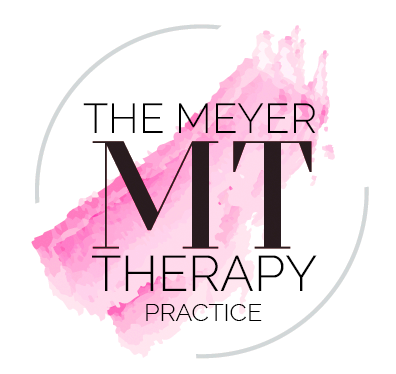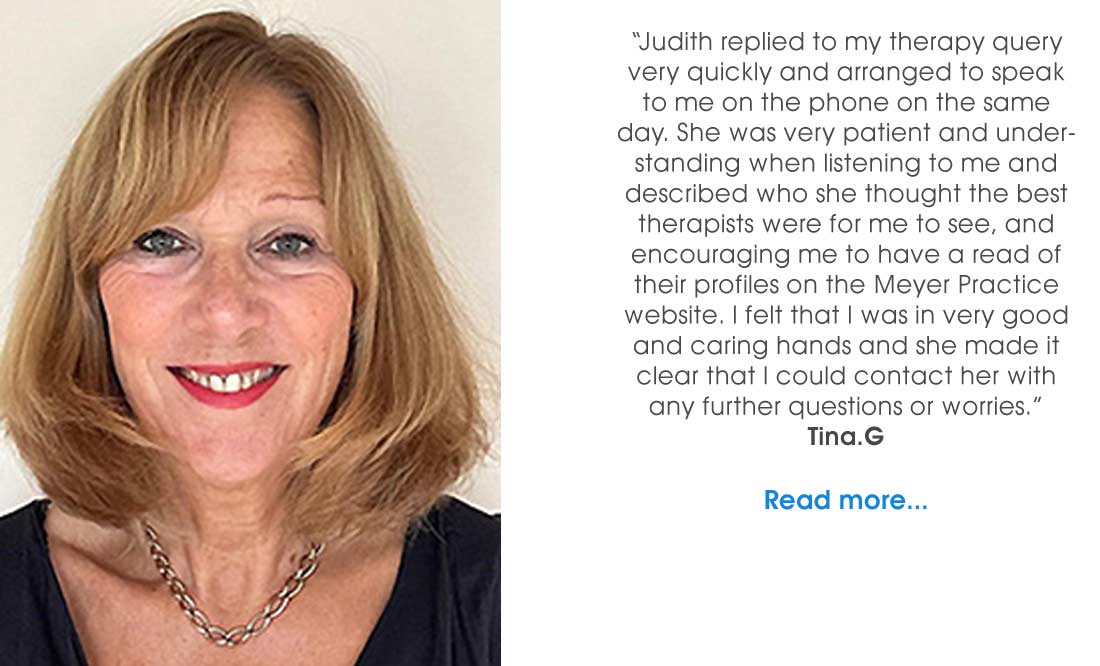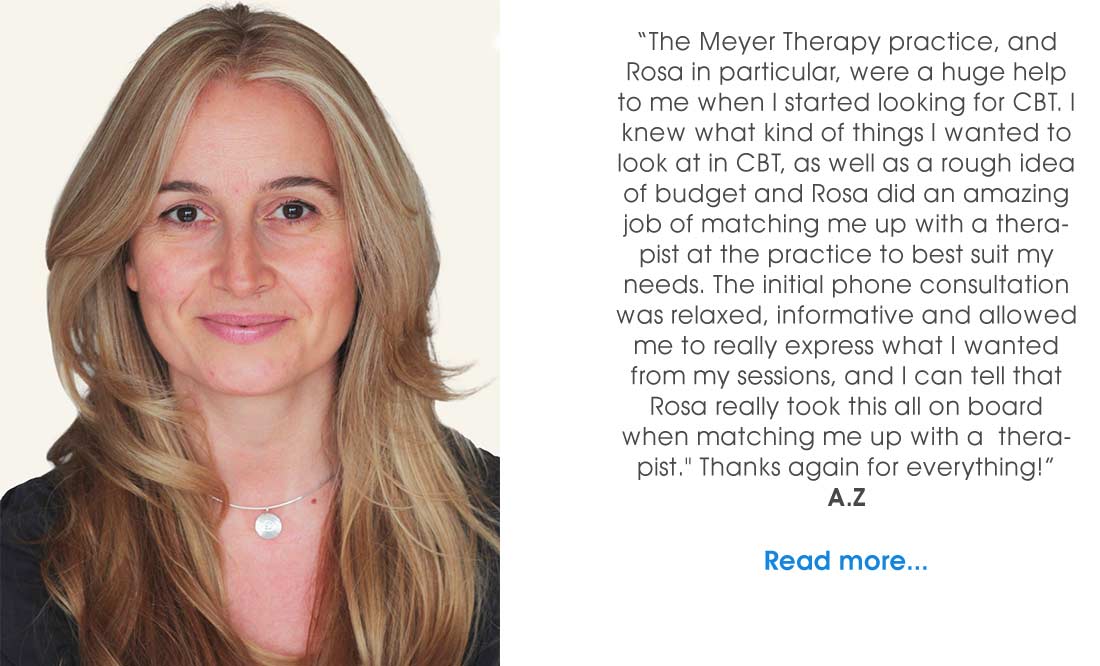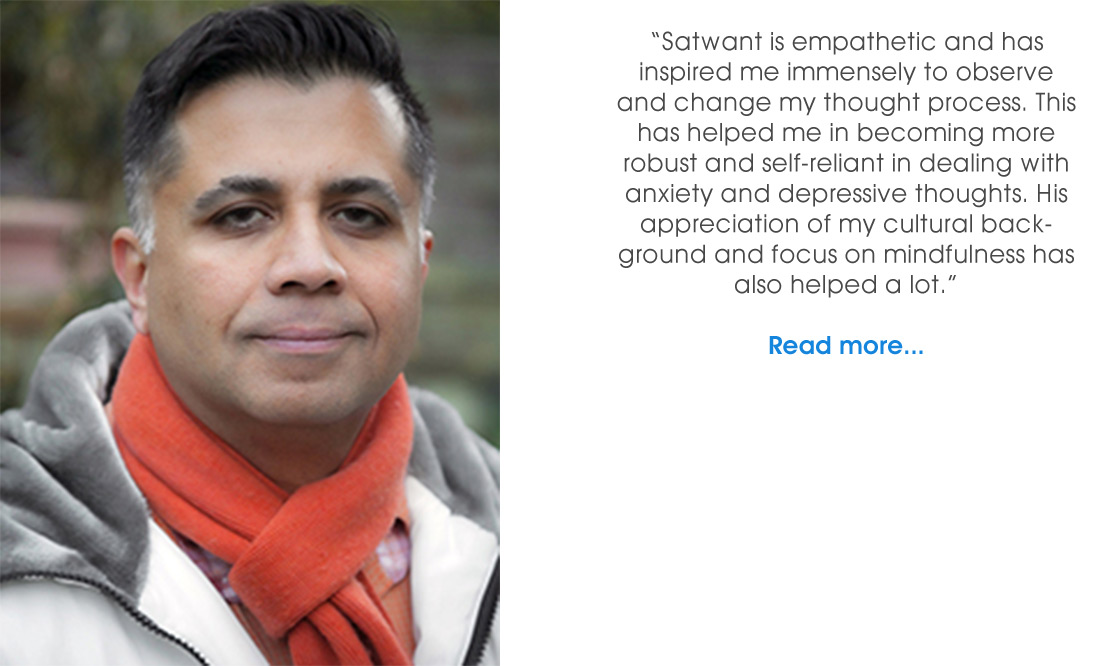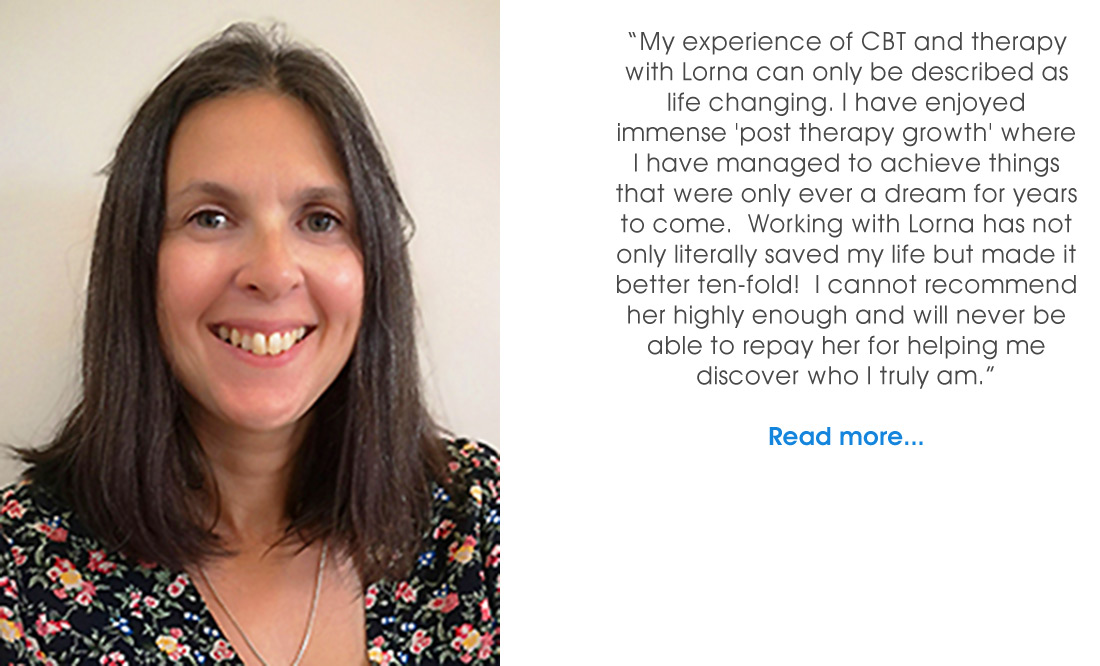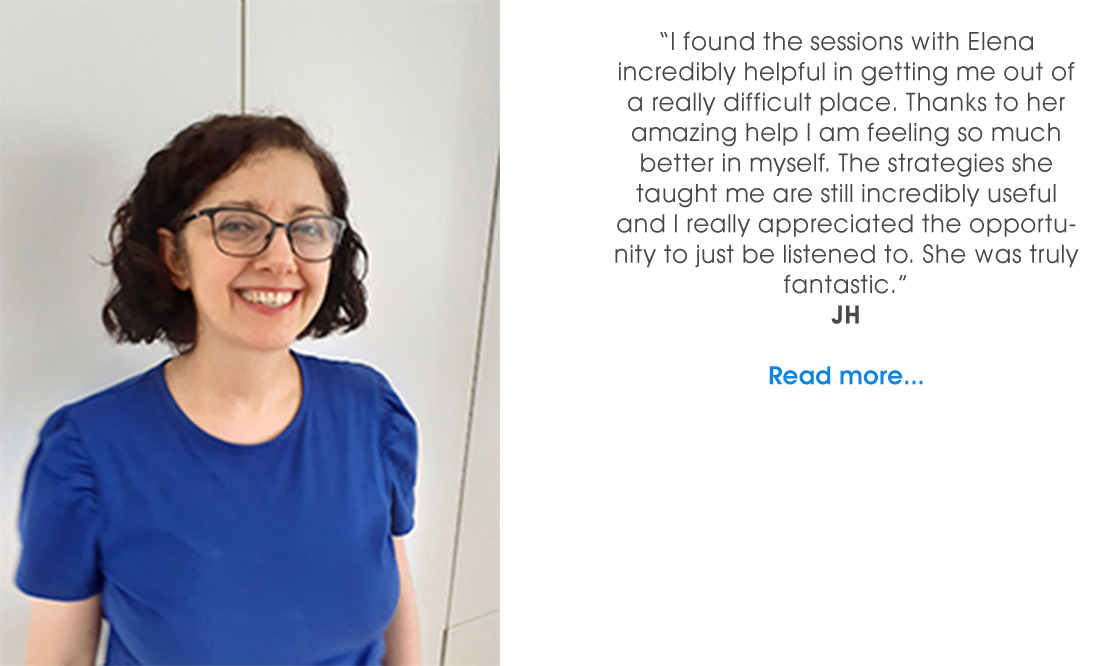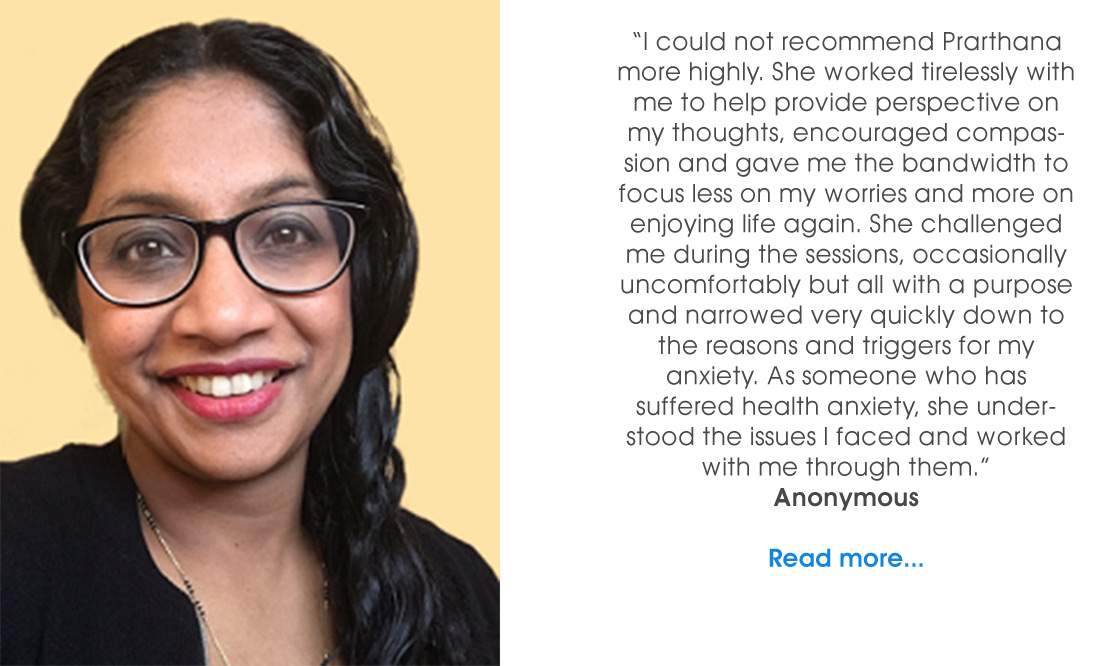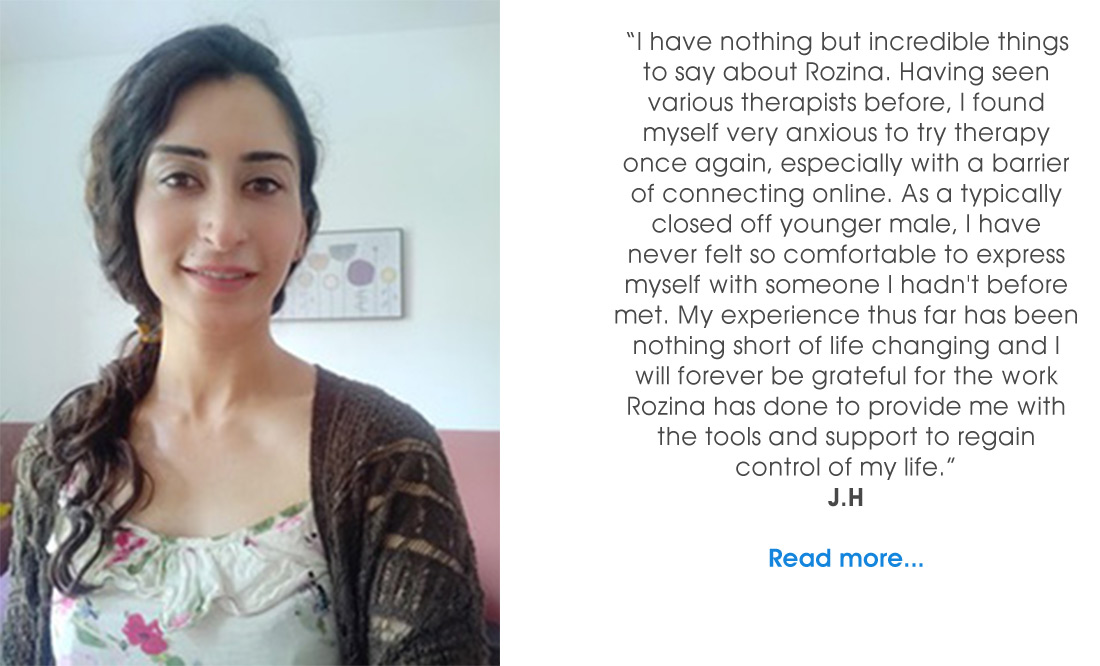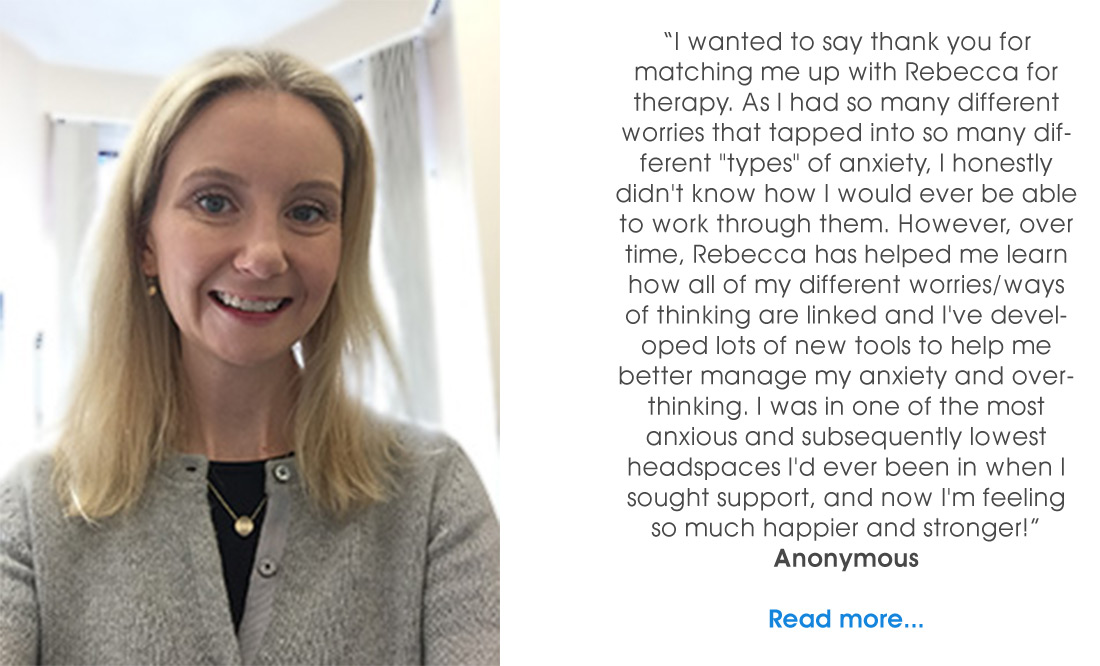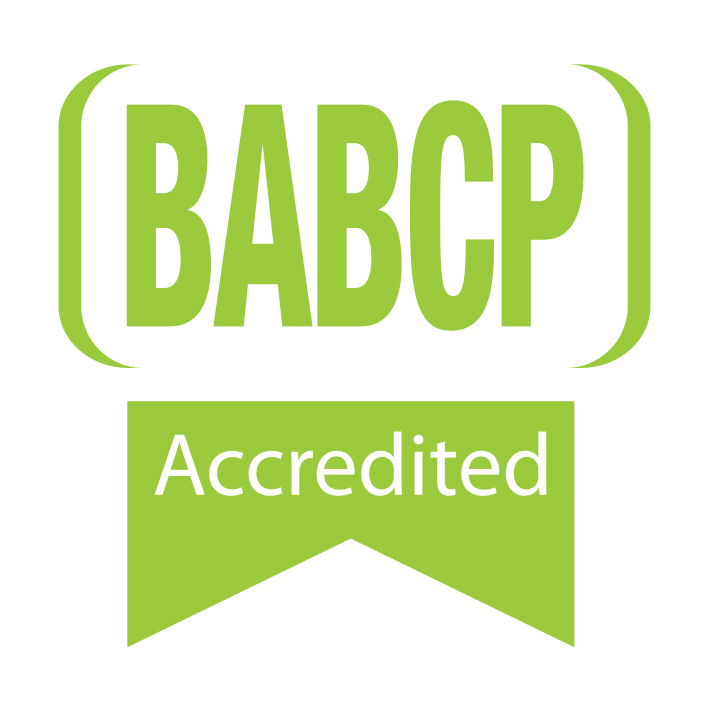Our aim is to create a warm and welcoming space where each person is treated as a unique individual. We are passionate about helping people to achieve their goals and create the life they want.
We apply equal opportunities in all our practices and clinical work.
In terms of the therapy approaches we offer, we specialise in Cognitive Behaviour Therapy (CBT) and integrate this with other innovative CBT based approaches such as compassion Focused Therapy Acceptance and Commitment Therapy (ACT) and Mindfulness Based Cognitive Therapy (MBCT). Please see below for a brief description of the different approaches.
All of these approaches are part of what’s called ‘Third Wave CBT’ because they are all the latest models of CBT Therapy. Unlike more traditional CBT these models are less interested in the content of the thoughts and more interested in how we relate to our thoughts and how we respond to them as this affects how we feel.
What is CBT?
CBT (Cognitive Behavioural Therapy) is an evidence based therapy which has proven to be highly effective in overcoming a wide range of problems. The main principle behind it is that our thoughts affect how we feel and then our behaviour. One of the main skills we learn through CBT is understanding how the negative thoughts we are having about situations might be unhelpful and we then learn to develop alternative thoughts that are a more flexible and realistic way of looking at that situation. This in turn will help us experience a more balanced emotion and deal with the situation in a more constructive way that will enable us to move towards our goals.
CBT offers a structured and problem solving approach; it is often a short term treatment that can last between 6 and 20 sessions although it is also highly effective to treat more complex and chronic problems which normally would require more long term therapy.
CBT focuses on the present. People often think that CBT is not interested in our past experiences. This is not the case. In CBT we are very interested in the person’s past and root of the problem however we don’t spend a long time talking about the past but only enough to understand how it’s affecting the present and might be holding you back in life.
CBT is a collaborative approach in which therapist and client work together towards helping the client move from their problems to their goals. It focuses on understanding how the problem developed and what the person might be doing to maintain it. It is a structured and very practical way of working and teaches practical tools and techniques for overcoming problems. It is a very empowering approach as the ultimate aim is for the person to become their own therapist so they can become independent. Therefore, there is an emphasis on ‘homework’ or in between session tasks that the client does to apply what they have learnt in therapy.
In addition to traditional CBT we draw on the latest CBT based approaches:
What is CFT?
CFT (Compassion Focused Therapy) was originally developed by Professor Paul Gilbert to work with people that had self esteem problems, are very self critical and experience high levels of shame. It also addresses the difficulties that people with a traumatic upbringing can experience when they feel held back by their past.
Paul Gilbert developed this approach because he realized that when using traditional CBT clients sometimes reported that they could see logically how their negative thoughts were not true but they still felt that way. For example someone could logically see that they are not ‘a failure’ but they still felt like ‘a failure’. CFT then helps to bridge the gap between the ‘logical understanding’ and the ‘emotional understanding’.
CFT is a scientific approach that draws on a number of disciplines and models including evolutionary science which is extremely helpful to understand how our human brains have evolved to protect us but can be very tricky to manage. When we understand how our brains work we are in much better position to manage our emotions. Other tools that CFT uses are Mindfulness and Imagery work. It also pays a lot of attention to how we feel in the body has a direct link to how we feel in the mind.
CFT can be extremely powerful to help overcome long standing negative self beliefs. If you have self esteem problems and tend to be self critical and hard on yourself and this is holding you back in your life or leading to depression and anxiety, CFT would be very helpful to you. It can actually be helpful for all kinds of problems as what we learn with CFT is how to support ourselves when we are struggling with difficult emotions.
With CFT you will learn to be more self compassionate and develop the courage to pursue your goals in life and become ‘the best version of yourself’.
What is ACT?
ACT (Acceptance and Commitment Therapy) differs from CBT in that it is less interested in the content of the thoughts and more interested in how we respond to the thoughts we have. If we get caught up with negative thoughts regardless of what those thoughts say and start worrying and ruminating about them we will lose ourselves in our minds and will not be present in the moment. We will also not have the energy and motivation to engage with and create the life that we want.
ACT is based on the idea that, generally, trying to get rid of pain and difficult emotions or thoughts actually feeds into them and makes them worse. If instead we are able to accept them we can focus on our goals. Acceptance doesn’t mean resignation but an acknowledgement of and a willingness to allow difficult experiences so that we can focus our energy on dealing with situations in a constructive way in line with our values for life.
Through ACT we learn to make room for painful feelings, thoughts, and sensations – allowing them to be there, coming and going without us struggling against them.
One of the main ‘ingredients’ of ACT is Mindfulness which we describe below.
What is MBCT?
MBCT (Mindfulness Based Cognitve Therapy) is a model of Therapy that combines CBT and Mindfulness.
Mindfulness is the quality of being aware of our experience: thoughts, feelings and body sensations while allowing them to be there and accepting them rather than resisting them or trying to change them.
To be Mindful we make the decision to take a step back from our experience and the frequent state of ‘auto pilot’ we are in and we become and impartial observer. We can then notice what’s happening in our body and mind without entering a battle to change our experience. By giving up this battle and accepting what is happening in this moment we free up a lot of energy and increase our feelings of inner peace. We become less impulsively reactive and are able to respond skillfully to situations.
It is evidence based and was originally created to be a relapse -prevention treatment for individuals with major depressive disorder (MDD). Since it was first developed it has rapidly grown and there is now evidence that it can be extremely helpful as a tool to manage all difficult emotions. Through MBCT we can learn to disengage from self-criticism, rumination and worry which will have a positive impact on well being.
We also offer EMDR (Eye Movement Desensitisation and Reprocessing) which is a highly effective treatment for trauma in conjunction with CBT.
What is EMDR?
EMDR (Eye Movement Desensitisation and Reprocessing).
EMDR is an evidence based therapy which was originally designed to treat traumatic memories and their psychological consequences but is now used to treat a range of disorders such as Anxiety, Panic attacks, phobias and sexual dysfunction.
Bilateral stimulation using eye movements or tapping helps the brain to process old disturbing material which keeps getting triggered over and over again and enables a linking to take place between different parts of the brain. New information can come to mind which helps to resolve the old problems and lowers the level of disturbance felt.
EMDR is often used in conjunction with CBT.
